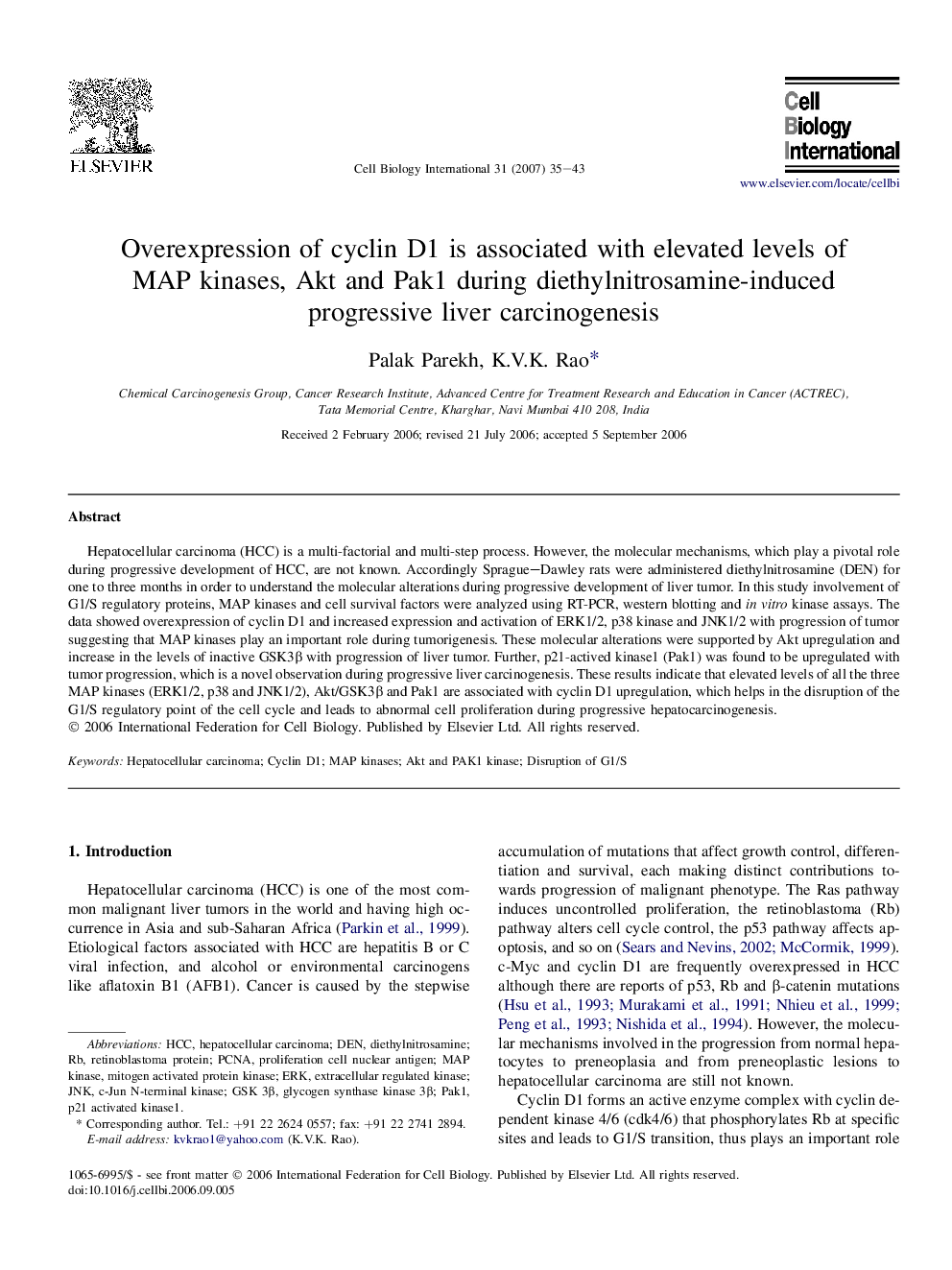| Article ID | Journal | Published Year | Pages | File Type |
|---|---|---|---|---|
| 2067772 | Cell Biology International | 2007 | 9 Pages |
Abstract
Hepatocellular carcinoma (HCC) is a multi-factorial and multi-step process. However, the molecular mechanisms, which play a pivotal role during progressive development of HCC, are not known. Accordingly Sprague-Dawley rats were administered diethylnitrosamine (DEN) for one to three months in order to understand the molecular alterations during progressive development of liver tumor. In this study involvement of G1/S regulatory proteins, MAP kinases and cell survival factors were analyzed using RT-PCR, western blotting and in vitro kinase assays. The data showed overexpression of cyclin D1 and increased expression and activation of ERK1/2, p38 kinase and JNK1/2 with progression of tumor suggesting that MAP kinases play an important role during tumorigenesis. These molecular alterations were supported by Akt upregulation and increase in the levels of inactive GSK3β with progression of liver tumor. Further, p21-actived kinase1 (Pak1) was found to be upregulated with tumor progression, which is a novel observation during progressive liver carcinogenesis. These results indicate that elevated levels of all the three MAP kinases (ERK1/2, p38 and JNK1/2), Akt/GSK3β and Pak1 are associated with cyclin D1 upregulation, which helps in the disruption of the G1/S regulatory point of the cell cycle and leads to abnormal cell proliferation during progressive hepatocarcinogenesis.
Keywords
Related Topics
Life Sciences
Biochemistry, Genetics and Molecular Biology
Biophysics
Authors
Palak Parekh, K.V.K. Rao,
